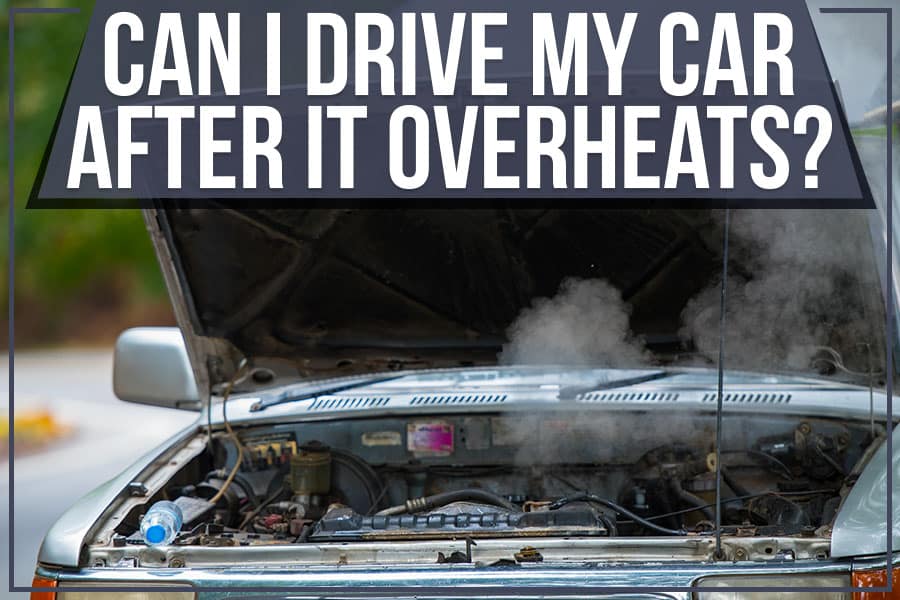What To Do & Not Do When Your Car Overheats

A carefree family gets in the car and speeds off to the beach for the weekend. Disaster strikes after a few hours of travel. The family is forced to stop when the engine begins to smoke. What will happen next?
This famous scene appears to be a requirement for every summer horror film, but you definitely don’t want to recreate it on your next road trip! Learn what to do (and what not to do!) when your car’s engine overheats to make sure you’re prepared in case calamity strikes.
Also Read:- How Do I Set Up A Gps Car Tracker On My Car?
Why Do Engines Overheat?
There are several causes of engine overheating. In most cases, this occurs when a problem with the cooling system prevents heat from leaving the engine compartment. A leak in the cooling system, a malfunctioning radiator fan, a damaged water pump, or a clogged coolant hose could be the cause of the problem.
You don’t want to let an overheating engine persist, regardless of the cause of the issue. You run the risk of significant, even irreparable, engine damage.
Signs Your Engine Is Overheating
You may lessen the possibility of permanent engine damage if you can take action to cool your engine before it overheats to the point of failure. However, you must first become aware of the signs of overheating, which can include:
- Steam Emerging From Under The Hood Of The Car, Which Can Appear To Be Smoke.
- A Dashboard Engine Temperature Indicator That Spikes To “H” Or The Red. Consult Your Owner’s Manual For The Specific Symbols For Your Engine Temperature Gauge.
- There Was An Odd Odor Emanating From The Engine Area. For Instance, While Leaking Oil May Smell More Burnt, Coolant Leaks May Smell Lovely.
Follow these instructions and get in touch with your local repair shop as soon as you notice the engine overheating.
What To Do When Your Engine Overheats
-
Kill The A/C And Crank The Heat.
To lessen the strain on the engine, immediately turn off the air conditioner. the dial to the highest heat setting. Until you can stop in a safe area, this can assist draw heat away from the engine to prevent it from overheating. Even if you could become a little warm, a few minutes of discomfort are nothing compared to the cost of expensive engine repairs.
-
Find A Safe Place To Pull Over.
Stop the automobile and turn off the engine. Give the engine at least 15 minutes to cool. Watch the temperature gauge; when the engine cools, it should return to a normal range.
Plan how you’re going to get your overheated engine checked out while you wait (and keep an eye on the gauge). For assistance, dial a friend, a tow truck, or your neighborhood Firestone Roadside Assistance. If you need assistance with step three, we’ll send a qualified staff to tow your car to the closest Firestone Complete Auto Care location.
-
Check And Add Coolant (If You Have It).
A simple top-off if your coolant level is low could assist safeguard your engine and prevent overheating until you can get the issue rectified. This procedure won’t help much, though, if your problems are being caused by a broken radiator fan or water pump, a clogged coolant pipe, or both. To locate your vehicle’s coolant reservoir tank and learn how to add coolant, refer to your owner’s manual.
-
RESTART THE ENGINE.
Now is the moment to carefully restart your engine and head to the closest auto repair shop if your automobile isn’t being towed. As you drive, pay attention to the temperature indicator. If it rises once again, stop and allow the system to cool.
What Not To Do When Your Engine Overheats
-
Don’t Panic.
You can maintain your cool when your engine can’t! When getting off the road, avoid swerving through traffic or slamming on the brakes.
-
Do Not Continue Driving.
You aren’t doing your engine any favors by continuing to drive if it is overheating but still functioning. Sure, you might be able to reach your destination before it completely fails, but if you push your engine too far, you risk serious (and expensive) damage.
-
Do Not Immediately Open The Hood.
After stopping, allow the engine to cool before opening the hood to inspect the situation. You run the danger of getting burned or hurt if you open the hood right away since steam or smoke will be emitted. The secret is to be patient. Before opening the hood, wait until the engine temperature gauge has stabilized.
-
Avoid Letting The Problem Linger.
Even though an overheating engine appears to be rectified after you add some coolant, it won’t go away on its own. If nothing is done about it, it will only get worse. To save your engine, identify the problem’s source. Bring your car in for a Complete Vehicle Inspection at Firestone Complete Auto Care so we can identify the issue and offer solutions.
What To Do To Avoid A Overheated Car Engine
If you take care of your car, it will look after you. The easiest strategy to avoid an engine overheating in your automobile is to do routine coolant exchanges and flushes on it, as well as to perform radiator maintenance as directed by the vehicle’s manufacturer. You may prevent radiator or engine problems from getting worse by doing routine inspections.
This summer, head to the beach instead of the highway to feel the heat. Keep your composure and visit your neighborhood Firestone Complete Vehicle Care for the professional auto repair guidance and assistance you require.







